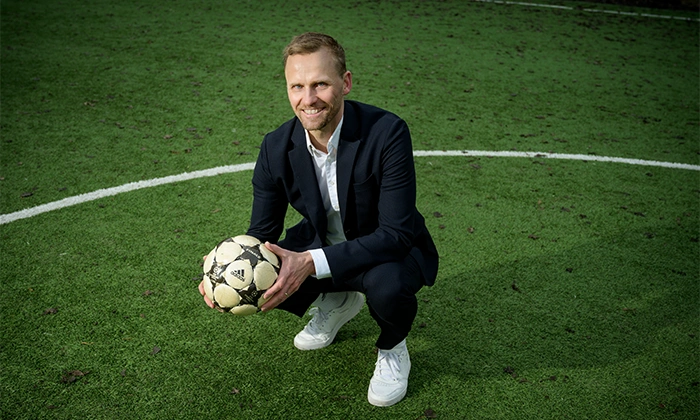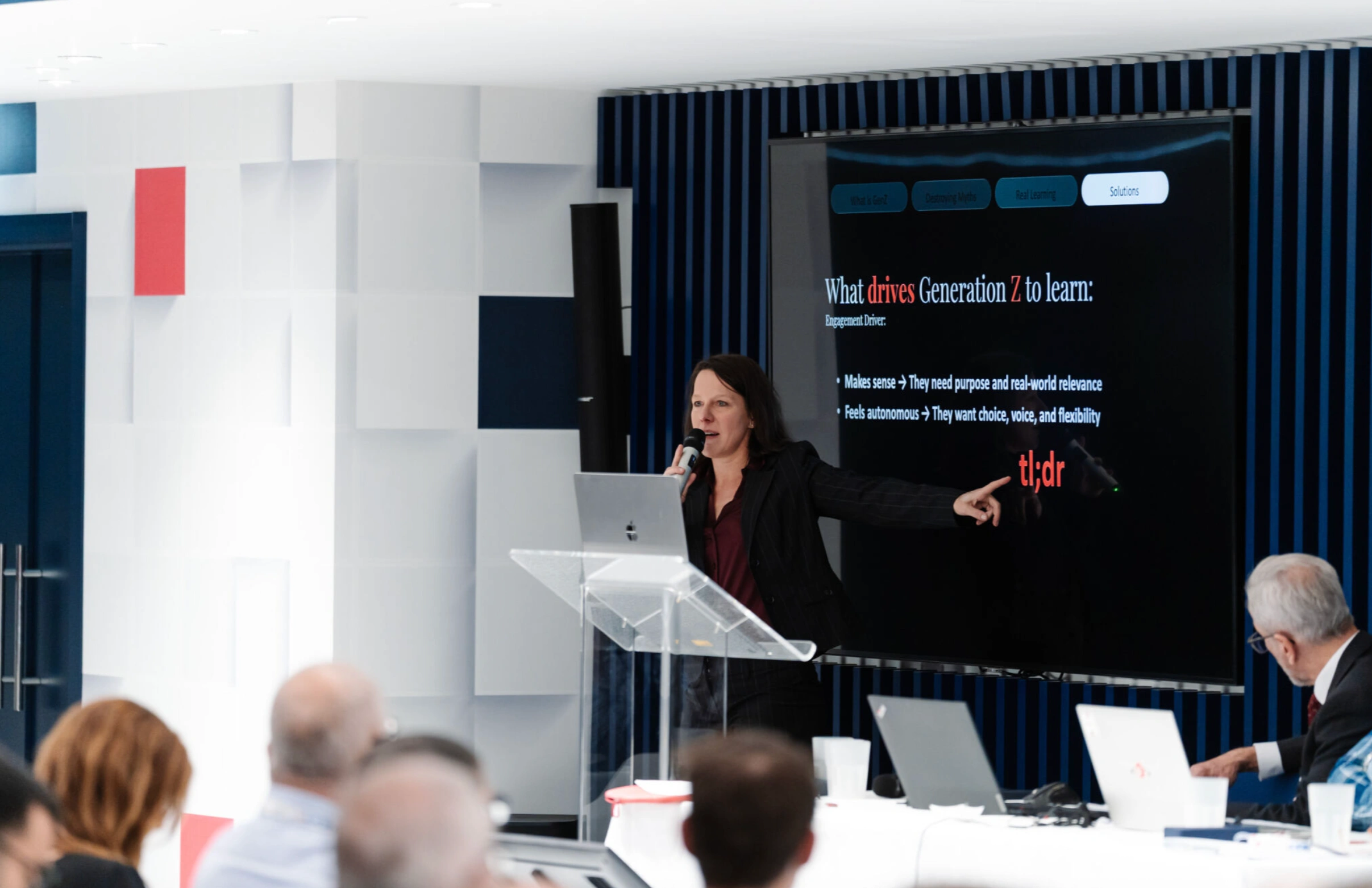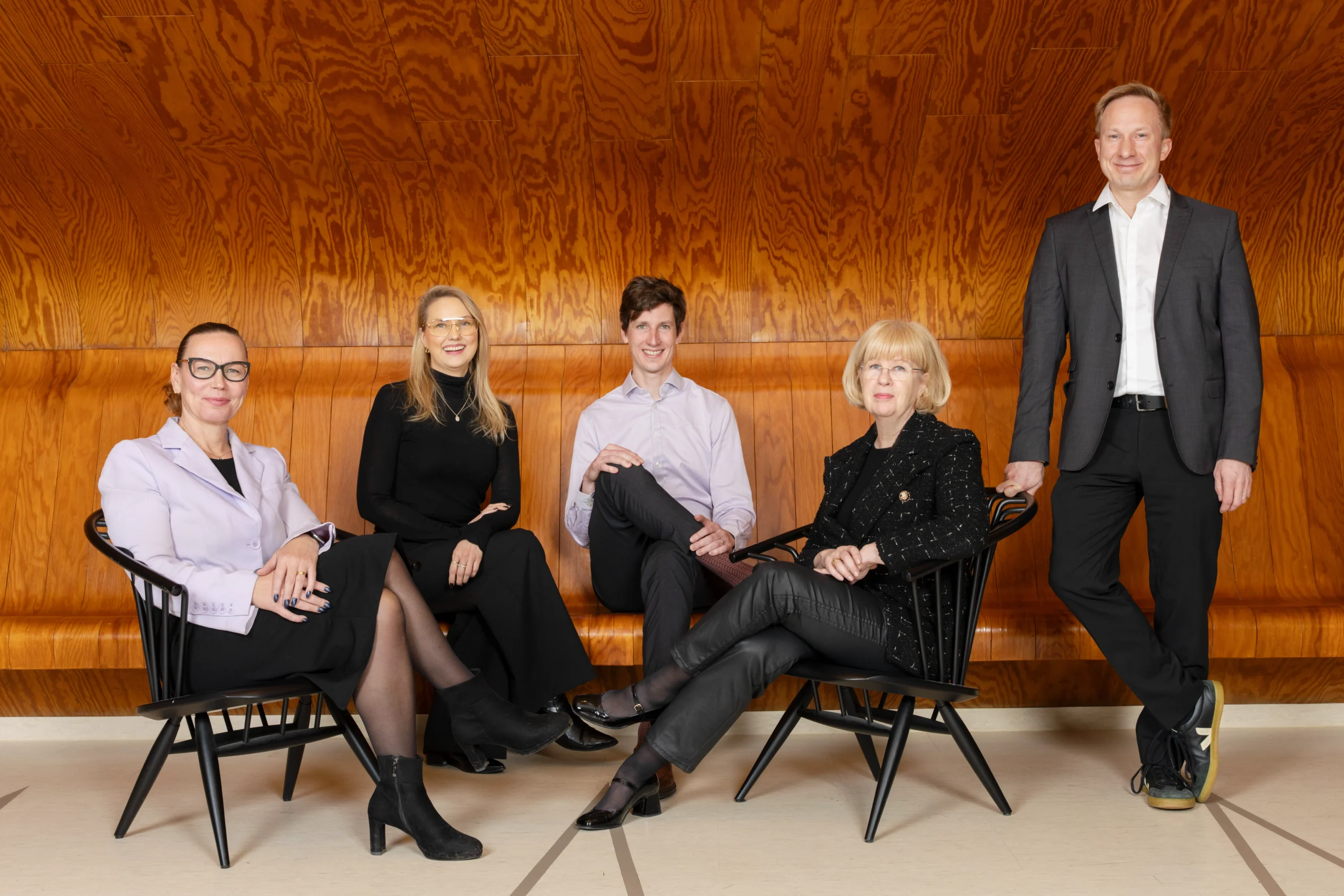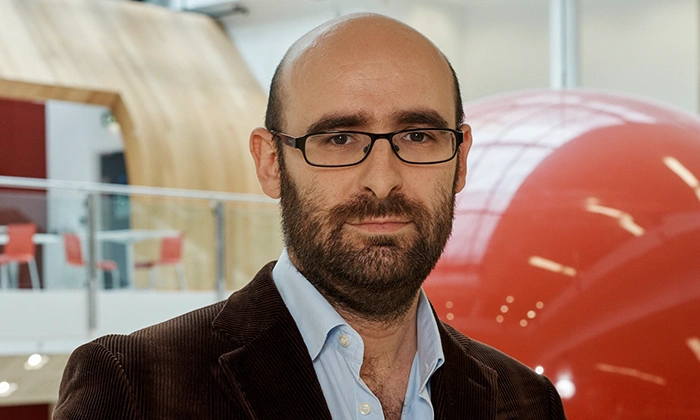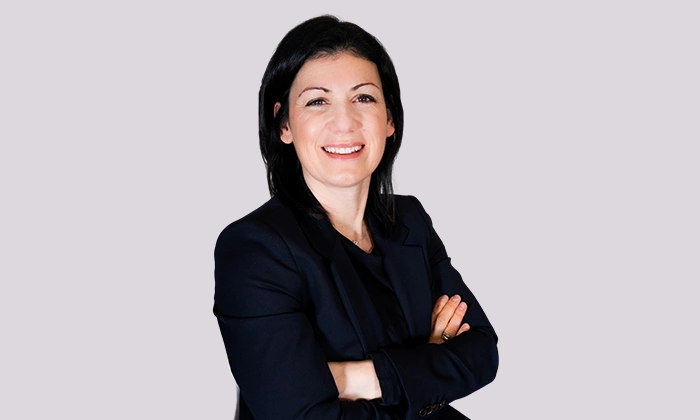Effective leadership begins with our thoughts

John E. Kaye
- Published
- Executive Education, Home
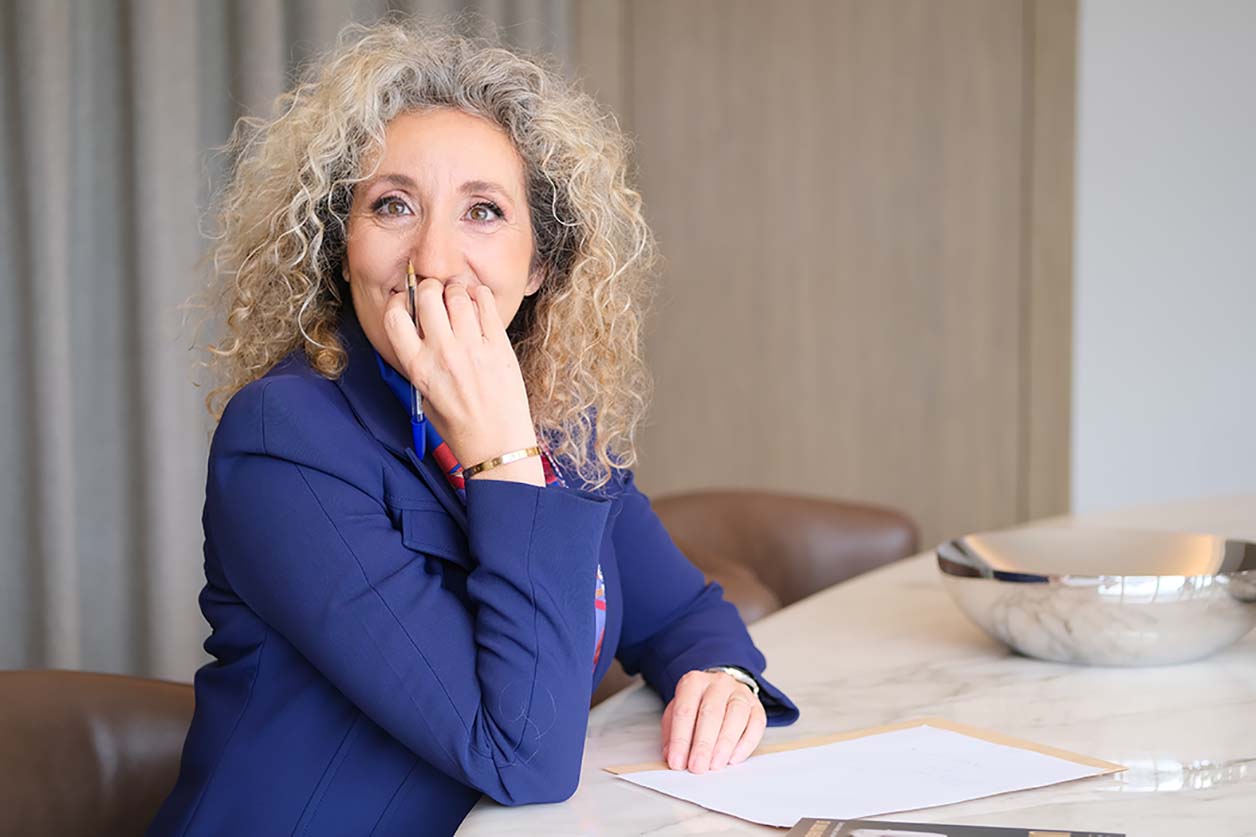
Recognising the importance of our thoughts is essential to effective leadership and the wider health of organisations, writes inspirational leader and author Dr. Nahla Khaddage Bou-Diab
Have you ever had a conversation about the power of our thoughts? Have you ever seen an advert that encourages people to care for their thoughts?
Why is it that all external messages focus on our physicality and ignore critical parameters such as thoughts and emotions? I guess the answer is that it’s easier to place our attention on what we can see and touch, yet the things we cannot see and touch—like thoughts and emotions—impact our wellbeing, and that of those around us, all the same.
Our thoughts help us define our perspective, and our perspective helps us interpret situations. In turn, this interpretation drives our behaviour. Pause for a moment and let me repeat: our thoughts trigger our behaviour! This is a good reason to invest effort in caring for our thoughts.
Typically, as we live life and make decisions, our choices are limited to two possibilities as to how we analyse situations. In the first possibility, we allow anything and everything into our thoughts. We permit chaos to form and we lose control because the clutter that dominates our thoughts biases the way we interpret circumstances. We become victims of our own emotions, and we find ourselves reacting to situations that we may have misinterpreted. Sounds familiar? Most of us have been through such experiences at one point or another.
In the second possibility, we place a high value on our thoughts. We are selective as to what we allow into our thoughts and this ensures that no one other than us controls our behaviour. We nurture our thoughts and we keep them calm, so that we can connect to our intuition and manage our lives to achieve the quality of life we desire, and to influence others positively.
If we are not the masters of our thoughts and emotions, then someone else is, and this can have a serious impact on our corporate lives and working environments—because leaders’ decisions affect not only the relationships within the organisation but, more importantly, the culture of the organisation, which is a key driver in performance.
If we don’t control our thoughts, our biases will—which filter the information we receive into interpretations that may be subjective, inaccurate and could lead us to allow our personal partialities to take control of our behaviour and, in some cases, lead to shaping the culture in ways that harm the organisations we manage. For instance, a lot of senior professionals suffer from a hidden disease called ‘ego’. This is a disease that poses great dangers to an organisation, with the risk of its symptoms being transmitted through the organisational hierarchy and its core processes, drilling down to customers and to levels of service.
Those suffering from this ego disease can cause organisational devastation on the level of innovation, agility, decision making, and retention of talent. More importantly, when egos run rampant, organisational resources get depleted of energy and the resulting culture will disable an organisation’s ability to achieve resilience.
As leaders, our inability to control our thoughts and emotions is also the key driver for the high stress and burnout levels that are now endemic in the business world, because we spread stress and pressure, when our job is to nurture and support.
We must recognise that the burnout and exhaustion rampant in the business environment is directly linked with the depleted energy of the organisational resources. Once we see things from this perspective, we will understand why leaders must train themselves to control their thoughts and emotions, which will in turn transform their leadership approach to focus on nourishing organisational resources to build resilience, rather than depleting it.
Likewise, as leaders we must acknowledge the wider fact that we influence the organisational environment. If we react based on unsubstantiated input, our unmoderated reactions will harm the organisation in ways we can’t imagine and damages will spread across our team all the way to the most junior employees. Leaders have the ability to destroy the organisation’s culture through their behaviour. Instead, if we maintain calm thoughts and ensure we are supporting the resources of the organisation by bringing people together—triggering collaboration, and enabling people to express themselves and bond— we will project an image of real power: the power of collective thinking; the power of directing all the strengths of an organisation toward one common organisational objective. We need to stop worrying about controlling people and start working on unleashing their human potential because this is how we ensure extraordinary collective output. And this is how our organisations will thrive.
Thankfully, we are designed with positive, innate functionalities to achieve this. We are equipped with intuition. Connecting to our intuition facilitates our decision-making process and protects us from making wrong decisions. More importantly, establishing a strong connection to our intuition makes us the masters of our lives. The stronger our connection to our intuition, the higher our chances of making the right decisions and living a prosperous life.
When we allow negative noises to control our thoughts, they overpower our ability to connect with our intuition and, with time, we forget we have it. Unfortunately, when that happens we get lost, lose our power, and external noises become the triggers of how we live life and how we lead, and in consequence we become tools of programmed behaviour. In situations like this it is normal that bad decisions trigger negative emotions and we become exhausted since we are reacting to everything, leading in some cases to resorting to medication to ease our suffering.
Protecting our thoughts from negative noises is, therefore, essential to prevent confusing emotions triggered by fear and biases from real intuition. When intuition results from clear thoughts, it becomes powerful, it drives passion, and leaders who feel it rarely make a mistake.
Here are some tips on how leaders can care for their thoughts.
1. Always monitor your state of mind because negative thoughts can creep up on us without us noticing. Be alert and don’t allow negative noises into your thoughts. The effort needed to prevent negativity from emerging at the entry level is far less than the effort you will need to recover from negativity after it dominates your thoughts.
2. Keep your thoughts ‘fit’. The same way we pay attention to our bodies, check our weight and make decisions on what to feed ourselves, we must care for our thoughts and become aware of the emotions our thoughts trigger. We must be aware of how we feel; we must challenge our emotions to filter these that result from negative thoughts against these that are triggered by our intuition.
3. Practice a holistic lifestyle where you care for both the physical body and non-physical body (thoughts, emotions and spirituality). One easy way of producing elevated emotions is to practice gratitude, because gratitude is a positive emotion that will unleash many other positive emotions. When we feel gratitude, we feel love, we connect with others, we give, we receive gratitude from what we give, and we get stuck in this beautiful cycle of love and gratitude, and this will keep us in control. And by doing that we release all fears that lead to poor reactions.
Dr. Nahla Khaddage Bou-Diab is the author of new self-help guide Untamable: Claim Your Power, Live Fearlessly, and Become Unstoppable, published through Oneness Offshore and packed with powerful, proven tools to transform your life. It is available now on Amazon, priced £11.59 in paperback and £5.87 as an eBook, as well as on Barnes & Noble. For more information, visit www.nahlaboudiab.com
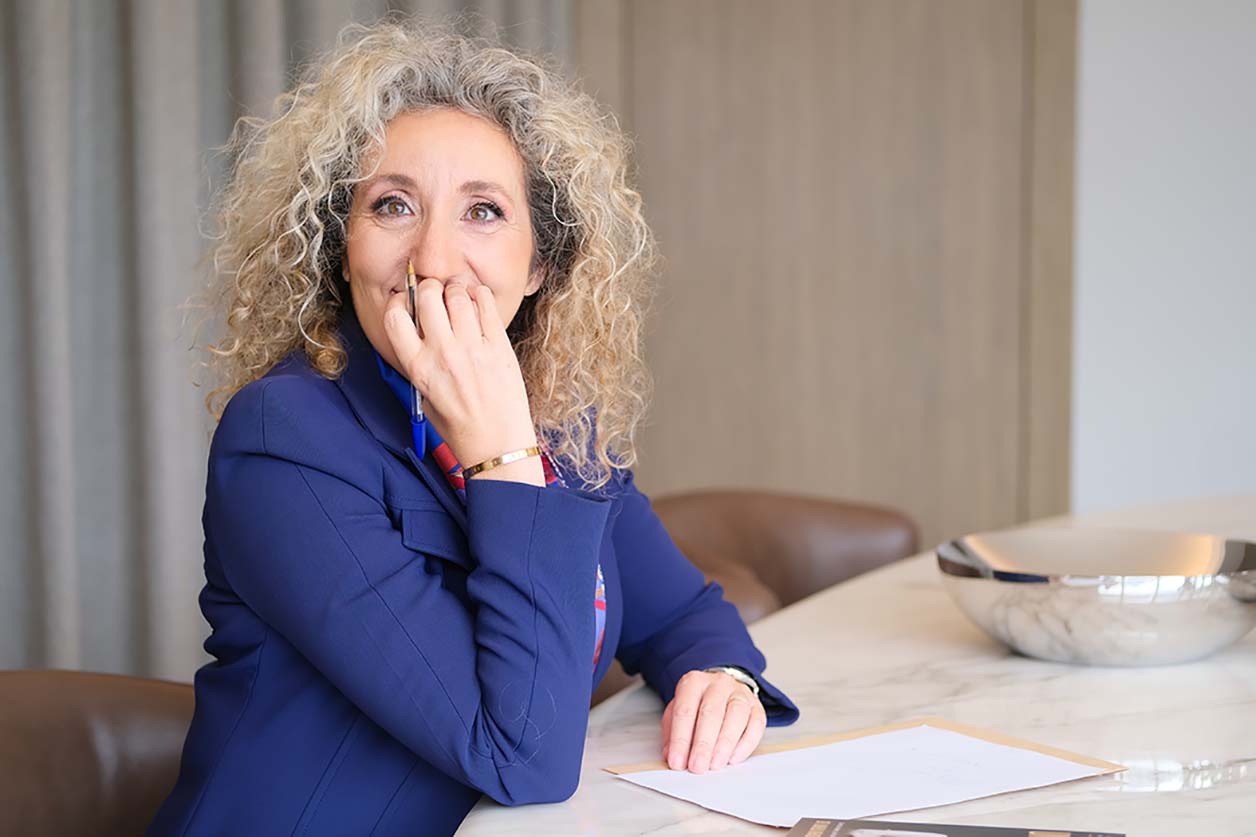
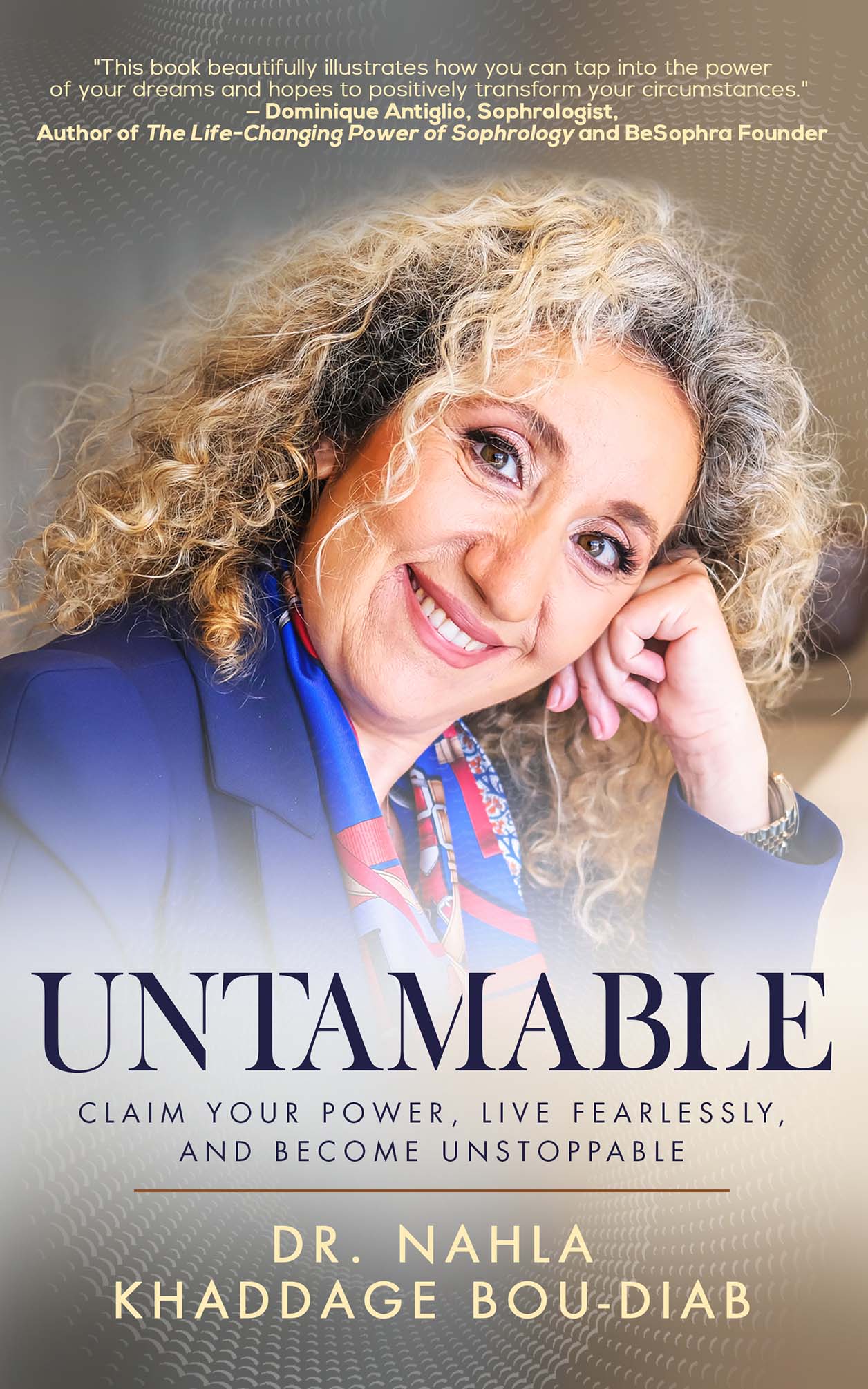
RECENT ARTICLES
-
 Hannu Tihinen on strategy, leadership, and the value of an EMBA
Hannu Tihinen on strategy, leadership, and the value of an EMBA -
 European MBAs adapt to AI as Aalto overhauls executive education
European MBAs adapt to AI as Aalto overhauls executive education -
 From dialogue to action: how emba X prepares leaders for a new era of responsible innovation
From dialogue to action: how emba X prepares leaders for a new era of responsible innovation -
 How Europe can learn faster: turning AI into safer, smarter adult training
How Europe can learn faster: turning AI into safer, smarter adult training -
 Aalto EE launches Aalto Tech EMBA to equip executives for digital transformation
Aalto EE launches Aalto Tech EMBA to equip executives for digital transformation -
 Supply chains are being remade. Leadership must be too
Supply chains are being remade. Leadership must be too -
 Why the real barrier to AI success sits in the boardroom
Why the real barrier to AI success sits in the boardroom -
 ETH Zurich and the University of St.Gallen redefine executive education with emba X, a new model of responsible leadership
ETH Zurich and the University of St.Gallen redefine executive education with emba X, a new model of responsible leadership -
 Why leadership is the strongest defence in South Africa’s schools
Why leadership is the strongest defence in South Africa’s schools -
 Porto Business School launches executive programme on AI strategy
Porto Business School launches executive programme on AI strategy -
 POLIMI Graduate School of Management strengthens global reputation in MBA and master’s rankings
POLIMI Graduate School of Management strengthens global reputation in MBA and master’s rankings -
 Trinity Business School strengthens standing in global MBA rankings
Trinity Business School strengthens standing in global MBA rankings -
 Meet the class of 2025… and their children. Why mid-life university learning is on the rise
Meet the class of 2025… and their children. Why mid-life university learning is on the rise -
 University of Michigan launches executive programme for chief data and AI officers
University of Michigan launches executive programme for chief data and AI officers -
 International education: A vision for global citizens
International education: A vision for global citizens -
 How to create lasting social change? Build a community
How to create lasting social change? Build a community -
 Tomorrow’s world needs Dyslexic Thinking
Tomorrow’s world needs Dyslexic Thinking -
 Why family therapy is the best investment you can ever make
Why family therapy is the best investment you can ever make -
 How EQ can give us the edge over AI
How EQ can give us the edge over AI -
 A true root and branch approach
A true root and branch approach -
 It's fine to say you're not ok
It's fine to say you're not ok -
 Are you willing to change with your organisation?
Are you willing to change with your organisation? -
 Emerging markets: Online learning for women unlocks economic potential
Emerging markets: Online learning for women unlocks economic potential -
 A programme of urgent importance
A programme of urgent importance -
 Why progress is not parity
Why progress is not parity

